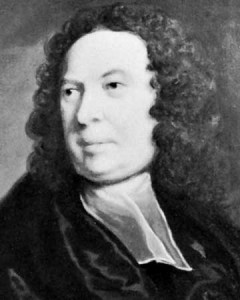 Born in 1683 in Upham near Winchester, Edward Young is perhaps one of the lesser recognized English poets of the time. He is now mostly known for a single work, Night Thoughts, though he was a prolific writer who produced a number of popular poems. He was raised in a moderately wealthy family with his father rising to the clerical heights of the Dean of Salisbury.
Born in 1683 in Upham near Winchester, Edward Young is perhaps one of the lesser recognized English poets of the time. He is now mostly known for a single work, Night Thoughts, though he was a prolific writer who produced a number of popular poems. He was raised in a moderately wealthy family with his father rising to the clerical heights of the Dean of Salisbury.
Young was well educated and went to Oxford where he matriculated to New College at the age of just 19. Imbued by the religious work of his father and his upbringing, he was admitted to All Souls to study canonical law for the Roman Catholic Church from which he graduated in 1919. Whilst he wrote from an early age, Young only published his first works in 1713 when he was in his thirties.
Much of his early work was designed to praise a range of royal personages such as Queen Anne or eulogize luminaries of the time including Joseph Addison. When he later collected his own works together, he would exclude most of these overly pious and sycophantic early works for the more sober and accomplished ones that were to follow.
About this time, Young became friends with the Duke of Wharton who promised to support him with an annuity, something which he later failed to do. After Young had refused other offers of money from supporters, he found himself having to plead his case in front of Lord Hardwicke to get the payment out of the Duke.

Young wrote a number of satires under the title The Universal Passion that was published in 1728 and was lauded by writers such as Samuel Johnson. While he was given a pension of £200 from Walpole and earned, it is said, some £3,000 from his Universal Passion satires, Young was always trying to find people to give more patronage for the poetical works and plays that he created, though he was living in a time when this kind of support for artists was beginning to subside quite dramatically.
Young’s major work is called Night Thoughts, a long and often disjointed work that is notable because it has a number of passages that, when isolated, are considered some the best poetry from the period. The poem was an enormous success for Young, earning him praise and money in equal measure and it was translated into several different languages and made him famous abroad.

In his late forties Young took Holy Orders and became a royal chaplain, himself marrying Lady Elizabeth Lee. It was a short lived marriage as she died a few years later and he made reference to her in his seminal masterpiece Night Thoughts. Into his dotage, Young wrote a number of other works including The Centaur Not Fabulous and the long poem Resignation which was composed a few short years before his death.
Young finally died at the age of 83 in 1765. The poet was a great influence on writers of the time including Goethe. Towards the end of the century the great poet and artist William Blake would reproduce and illustrate his famous work Night Thoughts.

